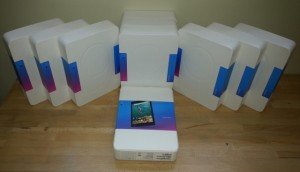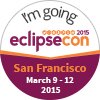A Vision of the Future of the Software Developer’s Platform
How will the developer’s platform change over the next three years? Will you still be using desktop-based development tools? Cloud-based software development options are getting more powerful, but will they completely replace the desktop? For a certain set of developers, cloud-based software development tools will be a natural fit and so we should expect migration to tools like Che. But the desktop will remain viable and vibrant well into the future: for many classes of problem, the desktop is the right solution.
Of course, there will be grey areas. Some problems can be addressed equally well by desktop- and cloud-based solutions. For these sorts of problems, the choice of development tools may be–at least in part–a matter of developer preference. There will be other drivers, of course (the exact nature of which is difficult to speculate). For this grey area, the ability for a software developer to pick and choose the tools that are most appropriate for the job is important. Further, the ability to mix and match development tool choices across a team will be a key factor.
I’ve spent a good part of the last few months working with a group of Eclipse developers to hammer out a vision for the future of the developer’s platform. Here’s what we came up with:
Our vision is to build leading desktop and cloud-based development solutions, but more importantly to offer a seamless development experience across them. Our goal is to ensure that developers will have the ability to build, deploy, and manage their assets using the device, location and platform best suited for the job at hand. Eclipse projects, the community, and ecosystem will all continue to invest in and grow desktop Eclipse. Full-function cloud-based developer tools delivered in the browser will emerge and revolutionize software development.
Continued focus on quality and performance, out-of-the-box experience, Java 9, and first class Maven, Gradle, and JVM Languages support also figure prominently in our vision of a powerful developer’s platform.
To paraphrase:
- Desktop Eclipse will remain dominant for the foreseeable future;
- Cloud-based developer environments like Che and Orion will revolutionize software development;
- Developers will be able to choose the most appropriate tools and environment;
- Projects can move from desktop to cloud and back;
- Desktop Eclipse developer tools will gain momentum;
- The community will continue to invest in desktop Eclipse-based IDEs;
- Java™ 9 will be supported;
- Developer environments will have great support for Maven and Gradle;
- Support for JVM languages will continue to improve; and
- User experience will become a primary focus
You’ve likely noticed that this is focused pretty extensively on Java development. This is not intended to exclude support for other programming languages, tools, and projects. As the expression goes, “a rising tide lifts all boats”: as we make improvements and shift focus to make Java development better, those improvements will have a cascading effect on everybody else.
My plan for the near future (Mars time-frame) is to get the Che project boot-strapped and latch onto the that last bullet with regard to the desktop IDE: user experience. While user experience is an important consideration for most Eclipse projects, it needs to be a top focus.
This vision of the future isn’t going to just happen. To succeed, we need organizations and individuals to step up and contribute. I’m aware that project teams are stretched pretty thin right now and many of the things on the list will require some big effort to make happen. Our strategy, then, is to start small.
I’m buoyed (in keeping with my sea metaphors) by the overwhelmingly positive response that we got when we turned line numbers on by default in some of the packages. I’ll admit that I don’t quite understand the excitement (it’s such an easy thing to toggle), but for many of our users, this was a very big and important change. The curious thing is that–while the change was preceded by a lengthy and time-consuming discussion–making the actual change was relatively simple.
My take away is that we can have some pretty big wins by doing some relatively small things. With this in mind, I’ve been poking at an informal programme that I’ve been calling “Every Detail Matters” (I borrowed this name from the Gnome community). Every Detail Matters will initially tackle things like names and labels, default settings for preferences, documentation, and the website/download experience (I’ve set up an Every Detail Matters for Mars umbrella bug to capture the issues that I believe make up the success criteria).
We’re also trying to tackle some relatively big things. The “installer problem” is one that I’m hopeful we’ll be able to address with via the Oomph project. I’m also pretty excited by the prospect of having Eclipse release bits available from the Fedora software repository on GA day.
In parallel, we’ve launched a more formal Great Fixes for Mars competition with prizes for winning contributors of fixes that improve the Java development experience.
Enter the Great Fixes for Mars skills competition; there’ll be prizes!
I’ll set up a BoF session at EclipseCon to discuss the vision and our strategy for making it real. It’d be great to see you there!
I wrote about the Platform Vision in the November Eclipse newsletter.
| Reference: | A Vision of the Future of the Software Developer’s Platform from our JCG partner Wayne Beaton at the Eclipse Hints, Tips, and Random Musings blog. |






